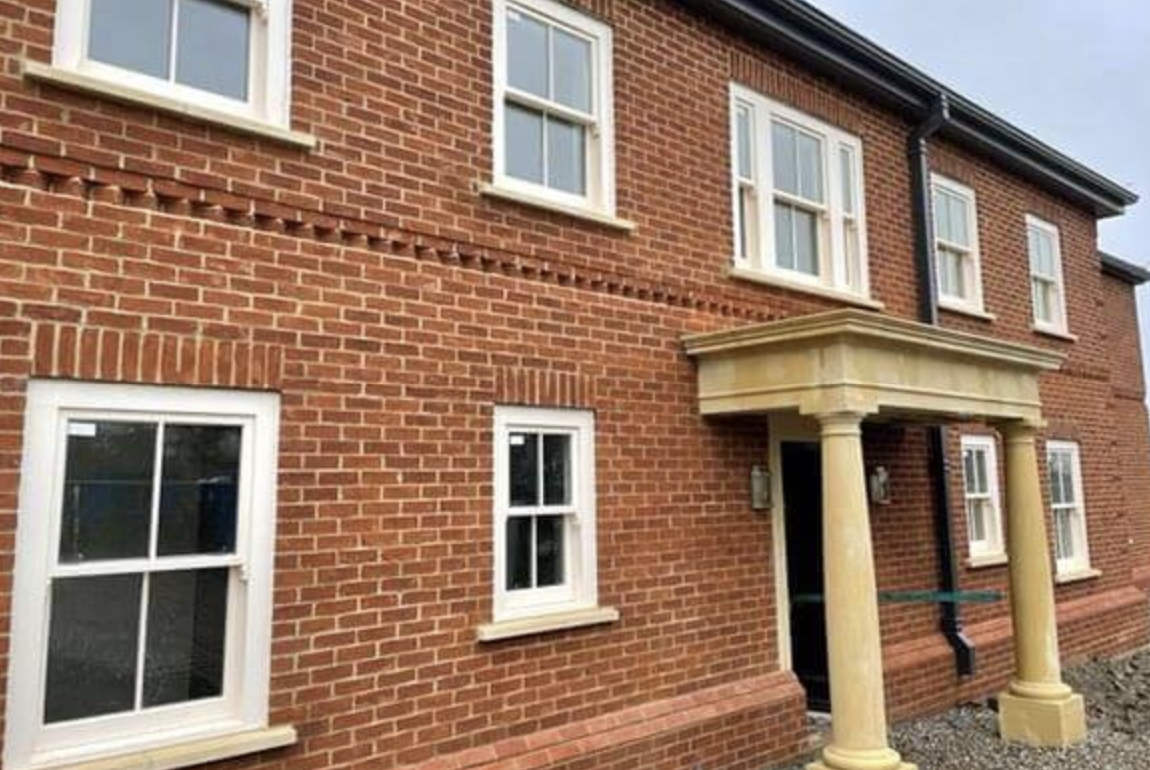Bricks have long been a favoured building material for their durability and classic appeal.
If you're looking to give your bricks a rustic, weathered look, there are several techniques you can use to achieve that timeless charm.
Here's a guide on how to make a rustic brick.
1. Whitewashing
Whitewashing is a classic method to give bricks a rustic appearance. This technique involves applying a thin layer of white paint mixed with water to the brick surface.
The mixture allows the natural texture and colour variations of the brick to show through, creating a soft, aged look.
How to Whitewash Bricks:
- Mix equal parts white latex paint and water in a bucket.
- Dampen the brick surface with water using a spray bottle.
- Apply the whitewash mixture with a paintbrush or sponge, working in small sections.
- Wipe off excess whitewash with a cloth to achieve the desired transparency.
2. Limewashing
Limewashing offers a more traditional approach to ageing bricks. Limewash is a mixture of slaked lime and water, which creates a matte, chalky finish that can be built up in layers.
Steps for Limewashing:
- Mix slaked lime with water according to the manufacturer's instructions.
- Dampen the bricks to help the limewash adhere better.
- Apply the limewash with a brush, ensuring even coverage.
- Allow the first coat to dry before applying additional layers for a more pronounced effect.
3. Distressing with Paint
Distressing bricks with paint involves applying and then partially removing paint to mimic the wear and tear of age.
This method can create a beautifully rustic effect, particularly on interior feature walls.
Distressing Technique:
- Choose a paint colour that complements the brick's natural tones.
- Apply the paint with a dry brush, using light, sweeping motions to avoid full coverage.
- Before the paint dries completely, use a damp cloth to wipe away some of the paint, focusing on edges and high points to create a worn look.
4. Applying a German Smear
German Smear, or mortar wash, uses mortar to create a rough, textured surface that looks aged and weathered.
This method involves spreading a thin layer of wet mortar over the bricks and partially removing it to expose some of the brick underneath.
How to Apply a German Smear:
- Mix mortar with water to achieve a thick, peanut-butter-like consistency.
- Using a trowel, spread the mortar over the bricks, working in small sections.
- Before the mortar dries, use a sponge or brush to remove some of it, exposing parts of the brick.
- Allow the mortar to dry completely, resulting in a rough, rustic texture.
5. Staining the Bricks
Staining can give bricks a rustic, aged look without altering their texture. Brick stains penetrate the surface, allowing the natural texture to remain visible while changing the colour.
Staining Process:
- Clean the bricks thoroughly to remove any dirt or debris.
- Choose a stain colour that suits the desired rustic look.
- Apply the stain with a brush, roller, or sprayer, ensuring even coverage.
- Allow the stain to dry and apply additional coats if a deeper colour is desired.
Closing Thoughts
Transforming new or plain bricks into rustic, charming features is a rewarding project that can add character and warmth to any space.
Remember we supply a wide range of rustic bricks, facing bricks and others.
Whether you opt for whitewashing, limewashing, distressing, a German smear, or staining, each technique offers a unique way to achieve that sought-after rustic look. Experiment with these methods to find the perfect finish for your bricks and enjoy the timeless appeal of a beautifully aged appearance.

